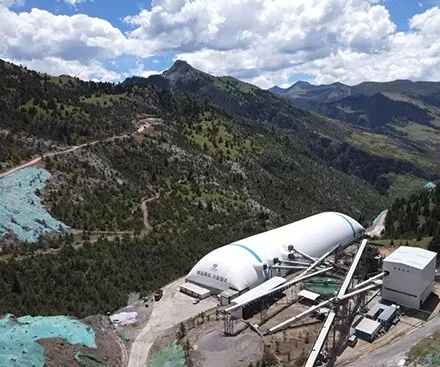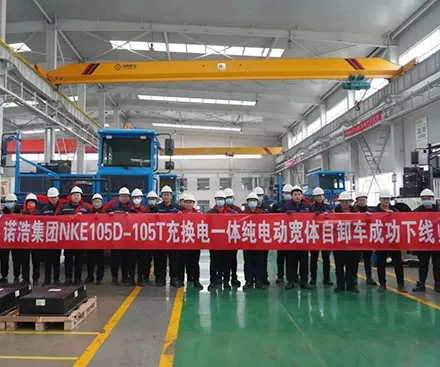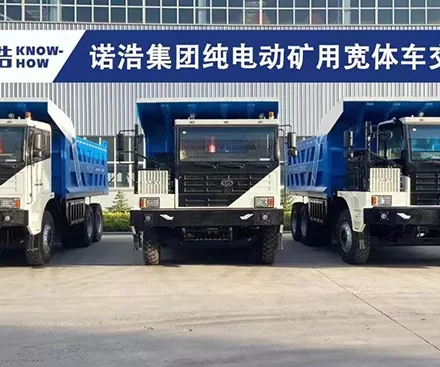As the global construction industry races toward sustainability, one pressing question continues to rise in search trends and procurement circles alike: Can electric dump trucks truly replace diesel models in large-scale construction projects? The short answer is yes — but with conditions. In this article, we’ll explore the growing shift from diesel to battery-powered dump trucks, the benefits and challenges of the transition, key performance comparisons, and what fleet operators should know before making the switch.
Electric vehicles (EVs) are no longer limited to passenger cars. The construction and mining industries are under pressure to reduce emissions, improve operational efficiency, and cut long-term fuel and maintenance costs. Heavy-duty equipment like dump trucks, which account for a significant share of fuel consumption and pollution, have become a primary target for electrification.
Governments across North America, Europe, and parts of Asia are offering subsidies, tax breaks, and low-emission zones that encourage construction companies to modernize their fleets. As a result, electric dump trucks particularly those with battery capacities above 500 kWh are gaining traction among contractors managing large earthmoving and infrastructure projects.
Modern electric dump trucks like the NKE105D7 (with a 724kWh battery) or NKE105T5 (528kWh) are designed for long operating hours, capable of handling uphill hauling and high payloads (70+ tons). These models can often match or exceed diesel in torque and uphill power when equipped with dual-motor systems.
Example: NKE105T5 offers full hydraulic steering, dual motor, and a CATL T-type lithium iron phosphate battery optimized for uphill terrain and heavy-duty continuous operations.
Diesel engines require frequent oil changes, part replacements, and emissions system repairs. Electric dump trucks, on the other hand, have fewer moving parts, leading to up to 30–40% lower maintenance costs over the vehicle's lifetime.
Electric dump trucks produce zero tailpipe emissions, helping construction firms meet ESG and decarbonization goals. They’re also significantly quieter, improving site conditions in urban or noise-sensitive areas.
Diesel trucks refuel quickly but at rising fuel costs. Electric dump trucks require charging infrastructure or battery swapping stations. Models like NKE105DT and NKE105T5 offer dual modes (charging and replacement) to improve uptime and flexibility in remote areas.
Yes, electric dump trucks usually come with a higher initial cost due to the battery and drivetrain. However, when you factor in fuel savings, lower maintenance, and government incentives, the total cost of ownership (TCO) is often lower within 3–5 years.
| Category | Diesel Dump Truck | Electric Dump Truck |
|---|---|---|
| Initial Cost | Lower | Higher |
| Fuel/Energy Cost | High (diesel price) | Low (electricity) |
| Maintenance | High | Lower |
| Emissions Penalties | Possible | None |
| Resale Value | Declining | Increasing Demand |
Yes. New-generation electric trucks like NKE145 with 620kWh CATL battery are specifically designed for off-road mining and rugged construction sites. With features like hydro-pneumatic suspension, regenerative braking, and four-circuit drum air brakes, these machines perform reliably under tough conditions.
Key Feature Highlights:
Dual motor system for climbing steep inclines
Full hydraulic steering for better maneuverability
Leaf spring + push rod + balance shaft rear suspension for load stability
Regenerative braking that extends battery life and reduces wear
One of the main barriers to adoption is the lack of robust charging infrastructure, especially on remote or temporary construction sites. However, companies are overcoming this through:
Mobile charging stations or on-site battery swapping containers
Fast-charging solutions that minimize downtime (e.g., 1–2 hours full charge)
Hybrid fleet integration, where diesel and electric trucks work side-by-side
Manufacturers like Deppkaler and Hyva are also providing custom lifting systems and charging solutions integrated with the truck chassis.
Mining operators in resource-rich regions are deploying electric trucks to lower fuel transport costs and reduce diesel theft a common issue in isolated operations. Construction firms working in low-emission zones of cities like London and Oslo are required by law to use zero-emission vehicles on certain sites. China's Belt & Road projects and public construction sites have begun integrating electric dump trucks like the NKE105F (AMT transmission model) to meet green building mandates.
When evaluating an electric dump truck for large-scale construction, decision-makers should assess:
Required battery capacity based on daily distance and payload
Charging/swapping availability at site
Operational terrain and slope percentage
Desired lifetime ROI vs upfront cost
After-sales support, parts availability, and warranty terms
ESG targets or government mandates applicable to the project
Yes, electric dump trucks can and are replacing diesel in many large-scale projects, especially when:
Operating in emissions-regulated zones
Long-term cost and sustainability are a priority
Terrain and power requirements are compatible
There is a clear strategy for charging or battery swapping

Jul. 23, 2022
View More
Jun. 15, 2022
View More
Jun. 01, 2022
View More